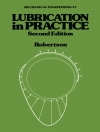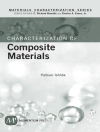This book presents state-of-the-art research on forming processes and formed metal product development aided by the Finite Element Method (FEM). Using extensive and informative illustrations, tables and photographs, it systematically presents real-life case studies and established findings regarding various forming processes and methods aided by FEM simulation, and addresses various issues related to metal formed part design, process determination, die design and die service life analysis and prolongation, as well as product quality assurance and improvement.
Metal forming has been widely used in many industries. This traditional manufacturing process, however, has long been linked to many years of apprenticeship and skilled craftsmanship, and its conventional design and development paradigm appeared to involve more know-how and trial-and-error than in-depth scientific calculation, analysis and simulation. The design paradigm for forming processes and metal formed product development thus cannot meet the current demands for short development lead-times, low production costs and high product quality. With the advent of numerical simulation technologies, the design and development of forming processes and metal formed products are carried out with the aid of FEM simulation, allowing all the potential design spaces to be identified and evaluated, and the best design to ultimately be determined and implemented. Such a design and development paradigm aims at ensuring “designing right the first time” and reducing the need for trial-and-error in the workshop. This book provides postgraduates, manufacturing engineers and professionals in this field with an in-depth understanding of the design process and sufficient knowledge to support metal formed part design, forming process determination, tooling design, and product quality assurance and control via FEM simulation.
<
Spis treści
Introduction.- Rigid Plastic Finite Element Method and FEM Simulation.- Evaluation of forming system design.- Die design and service life analysis.- Flow-induced defects in multi-scaled plastic deformation.- Ductile fracture and stress-induced defects in multi-scaled plastic deformation.
O autorze
Dr. Ming Wang FU (M.W. FU) has been working on metal forming and product design and development supported by computer-aided design technologies and finite element simulation for more than three decades. He is currently a faculty member at the Department of Mechanical Engineering, The Hong Kong Polytechnic University (HK Poly U). Before joined the HK Poly U in 2006, he had worked as a senior research engineer at the Singapore Institute of Manufacturing Technology from 1997 to 2006. His current endeavors are more focused on advanced materials processing and product realization at different scales and aided by experiments and numerical simulations. To date, Dr. Fu has published more than 160 SCI journal papers and three monographs on metal forming technologies, computer-aided die and mold design, and product design and development.












